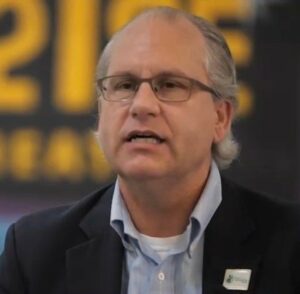
Today we’d like to introduce you to Jeff Breedlove.
Hi Jeff, so excited to have you with us today. What can you tell us about your story?
My personal recovery story:
I am Jeff Breedlove and I am a person in long-term recovery from Substance Use Disorder (Addiction). I have been recovery just over six years following 30 years of active addiction. My active addiction started when I was 20 years old and lasted until I was 50. For my entire adult and professional life was in active addiction. It was pure hell. During this time, I worked in politics and policy. It was my privilege to work for numerous elected officials, government entities, and non-profits. I held senior staff positions in many of my job postings.
I lost my first job to my disease in 1998 – I learned how to lie and manipulate, I also learned that no one wanted to admit they had an “addict” on their staff – this was my first exposure to stigma. I am a native of Atlanta, Georgia but at this point. I did a major geographic and tried to outrun my disease.
It did not work.
My journey took me to Arizona, Washington state, Montana, Oregon, and Sacramento and Los Angeles, California. It was quite the experience. Despite some fun memories, the hell and pain of my disease joined me on each and every stop.
In 2002, my wife and I returned home to Atlanta. At this point, I stopped using my drug of choice (crack cocaine). This lasted for seven years. We thought I was cured and better.
I was not.
After seven years, I would resume my relationship with crack. Thus began the most dangerous 11 years of my life. While I would only use once a year (a part of me did want to stop) this once-a-year occurrence was a binge. A binge, for me, was usually a two-day occurrence where I would run up debts, pawn items, steal (from my family), and put my loved ones (and myself) in harm’s way with dealers with guns.
Big deadly guns.
This hellish 11-year nightmare came to a rather dramatic and quite public conclusion in October of 2016. I was serving as Chief of Staff to DeKalb County Commissioner Nancy Jester. On a beautiful Fall Friday as I was hosting an international delegation of government officials and my son was set to play his high school football game, I went out on a binge.
This binge would end after midnight on the following day as I was arrested by my own police department. When the two officers realized I was, in fact, the Chief of Staff to a County Commissioner, they made a call. The next thing I knew there were some two dozen police cars in the parking lot with high-ranking police officials. I did mention this was well after midnight at this point.
They were tired and less than pleased.
I went to DeKalb County police headquarters then, after what seemed like an eternity, they charged me with lying to police and went with the felony option. I was driven to jail where I would reside for the next three days.
Upon my release, I went home to a family both concerned and angry. Oh, I also got to watch and read the three days of media coverage regarding my arrest.
It was like an episode of America’s Most Wanted.
Seriously.
Eventually, I would enter treatment at MARR in Doravillle, Georgia. I would stay there for 90 days. I was scared and angry to be sent to a 90-day treatment facility. I assure you I absolutely did not want to be there and did not start off, by any measure, a model patient.
MARR was hard. Make no mistake about it. I had to accept living in a group situation, I had to share, and, worst of all, I had to learn to deal with and process feelings.
This feeling stuff is hard but essential for true recovery. At some point, I embraced the treatment, I participated with integrity. I actually took it seriously and tried. It might have been my roommates supporting me, it might have been the reality of the media stories about me, or it might have been that my dad died of a heart attack while I was in treatment – just after I shared my life story about the childhood trauma between us, but I started to embrace recovery.
I suspect it was all three plus accepting and developing a relationship with my higher power. Let’s call him Jesus Christ.
Once I started to embrace recovery, I started to change. For the healthier. It is a surreal and transformational metamorphosis. Once I forgave myself and decided to not only stop hating myself but to actually like myself, life started changing. I embraced feelings. I started to care about other people – really care. I allowed the staff at MARR to really teach me. I got a sponsor.
I surrendered.
I entered recovery.
MARR saved my life.
I would depart MARR after 90 days and move back home. But I was just getting started in my recovery. There is part of the Big Book which teaches that a person with my disease must be willing to go to any length to recover. For me, MARR (and my sponsor) challenged my wife and me to continue visiting MARR and additionally attend a series of support meetings outside of MARR until I was medically ready to enter the workforce again. They strongly and, with clarity, made a case that if we did not agree to this additional time, I would not maintain recovery.
My wife did not hesitate a moment to agree. She allowed us to suffer financially to give me time to get better. This part of my recovery would last a year and a half. Let me provide some clarity you, dear reader, one can attend a very large number of meetings and sessions in a year and a half.
I needed every one of these meetings.
MARR and my sponsor saved my life.
At this point, MARR, my sponsor, and my wife were all ready for me to go to work. I would be less than honest if I said I was. I had grown accustomed to my new schedule of meetings and personal downtime which involved lots of TV and the occasional book. But they won and I was “forced” to try and find a job.
No one was interested in hiring the crackhead who has made the news. No one was even willing to help find me a job.
No one.
Until one person was.
That one person was the Attorney General of Georgia – Chris Carr.
It just takes one person to change another person’s life.
Attorney General Carr introduced me to Neil Campbell. Neil is the Executive Director of the Georgia Council for Recovery. In so doing, Attorney General Carr also introduced me to the Georgia Recovery Community. This simple introduction changed my life. Two weeks later, Neil would invite me to join her team at the Georgia Council for Recovery as the Chief of Communications and Policy.
The Georgia Council for Recovery is 22 years old and is the exclusive statewide Recovery Community Organization for Georgia.
The Georgia Council for Recovery provides advocacy that mobilizes and organizes Georgia’s recovery communities to promote the benefits of recovery and eliminate discrimination against people seeking and in long-term recovery. We also provide education and training relevant to the addiction recovery field and acting as a clearinghouse of information on substance abuse prevention, treatment and recovery-oriented systems of care.
The Georgia Council for Recovery saves lives.
My journey is special, but it is not unique. I am one of over 800,000 peers in Georgia who live a life of hope and joy in recovery. There are over 24 million of us across the United States. We stand on the memories of our brothers and sisters who have been lost to our disease. We show the world that Recovery is Real so that everyone can know that they can embrace a life of joy.
Alright, so let’s dig a little deeper into the story – has it been an easy path overall and if not, what were the challenges you’ve had to overcome?
My life has been anything but smooth. Addiction is hell. In addition to the drug of choice, there was mental health issues. It is not an excuse but a reality. However, addiction, Substance Use Disorder, is a disease, not a moral failing or lifestyle choice. There is no cure for addiction but there is recovery.
I struggled with childhood trauma, depression, arrogance, insecurity, fear, and any number of other issues. I told no one and no one saw this part of me. I think this is all too common and must change.
Most doctors, scientists, and others who are smarter than I am believe a supermajority of addiction cases have their root in childhood trauma. They are almost certainly, correct. Whatever the cause of addiction, there is no cure but there is recovery.
Recovery is Real.
Great, so let’s talk business. Can you tell our readers more about what you do and what you think sets you apart from others?
The Georgia Council for Recovery is 22 years old and is the exclusive statewide Recovery Community Organization for Georgia.
The Georgia Council for Recovery provides advocacy that mobilizes and organizes Georgia’s recovery communities to promote the benefits of recovery and eliminate discrimination against people seeking and in long-term recovery. We also provide education and training relevant to the addiction recovery field and acting as a clearinghouse of information on substance abuse prevention, treatment and recovery-oriented systems of care.
We are peer-led. Everyone at the Council is a peer in recovery. We serve our community and families with servants’ hearts. We are subject matter experts in surviving addiction, knowing how to speak up for peers against discrimination and declare that Recovery is Real.
The Georgia Council for Recovery saves lives.
What matters most to you? Why?
People are dying from issues associated with alcohol and drugs at historic rates. Non-fatal medical issues are, likewise, at historically high levels. Addiction kills people and when it does not literally kill it places people and families in serious financial and social distress.
It is important to do two things at the exact same time. Stigma is the most dangerous issue surrounding addiction. We must defeat stigma by calling out hate and discrimination anywhere and everywhere it appears. Likewise, we must live our recovery out loud to show those still in active addiction and very early recovery that Recovery is Real.
When we show people that Recovery is Real, we increase funding for recovery programs, we pass laws to support our community, and we save lives.
Contact Info:
- Website: www.gasubstanceabuse.org
- Instagram: @gc4recovery
- Facebook: Georgia Council for Recovery
- Twitter: @recovery_gc4r
- Youtube: @georgiacouncilonsubstanceabuse
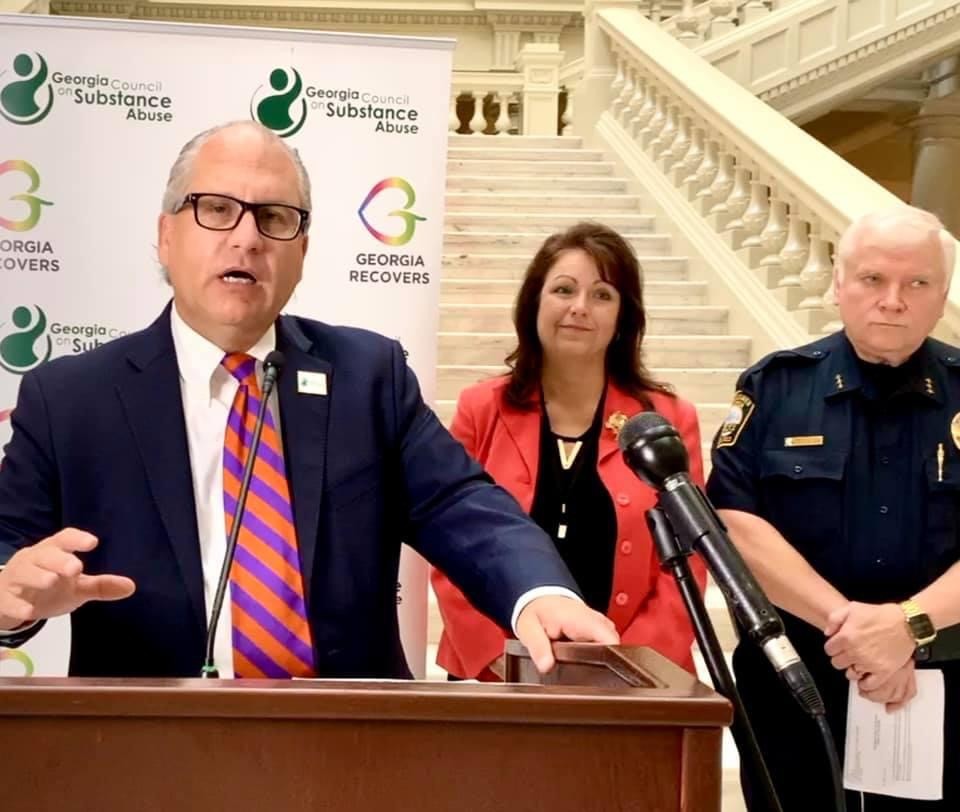
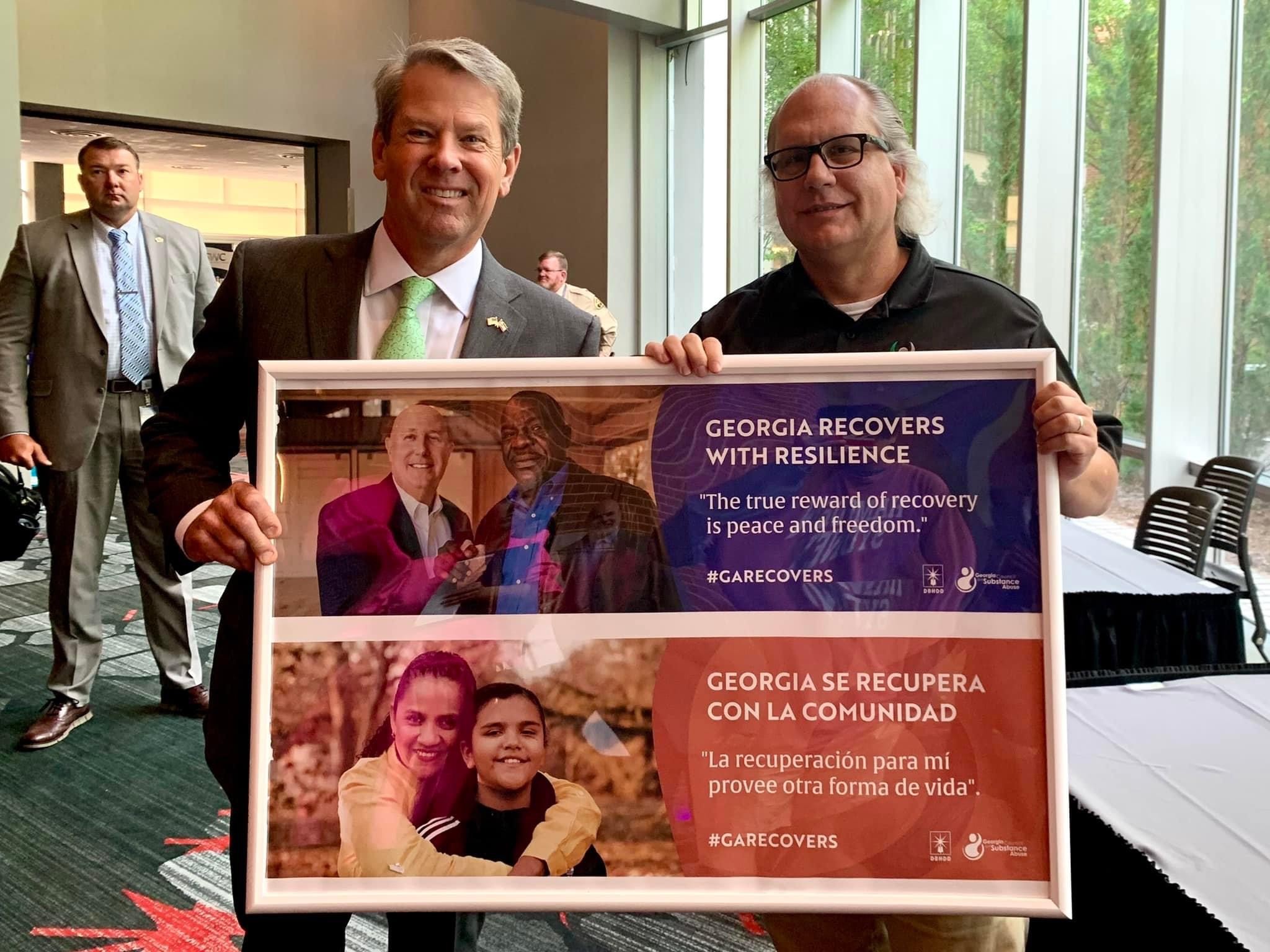
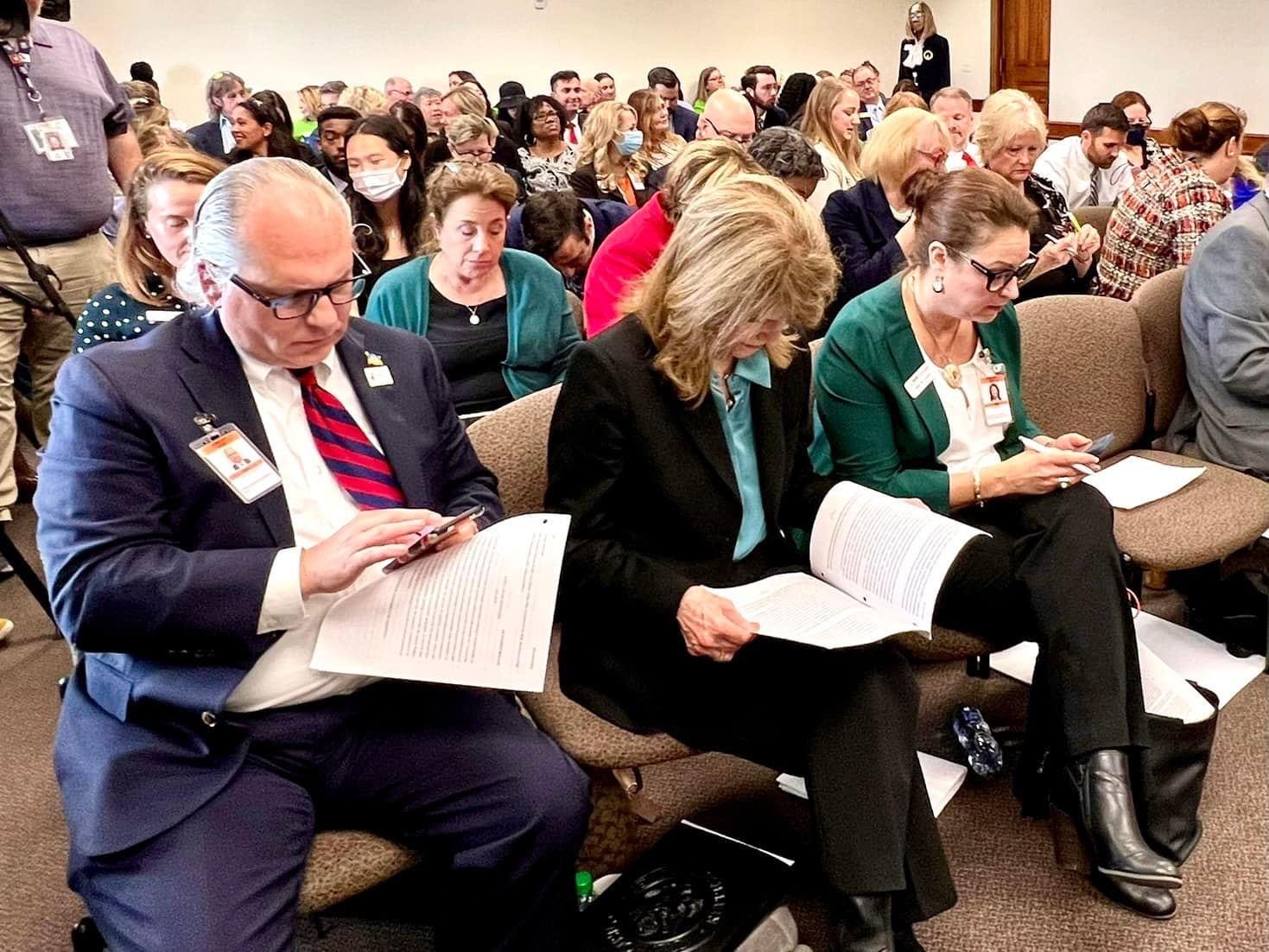
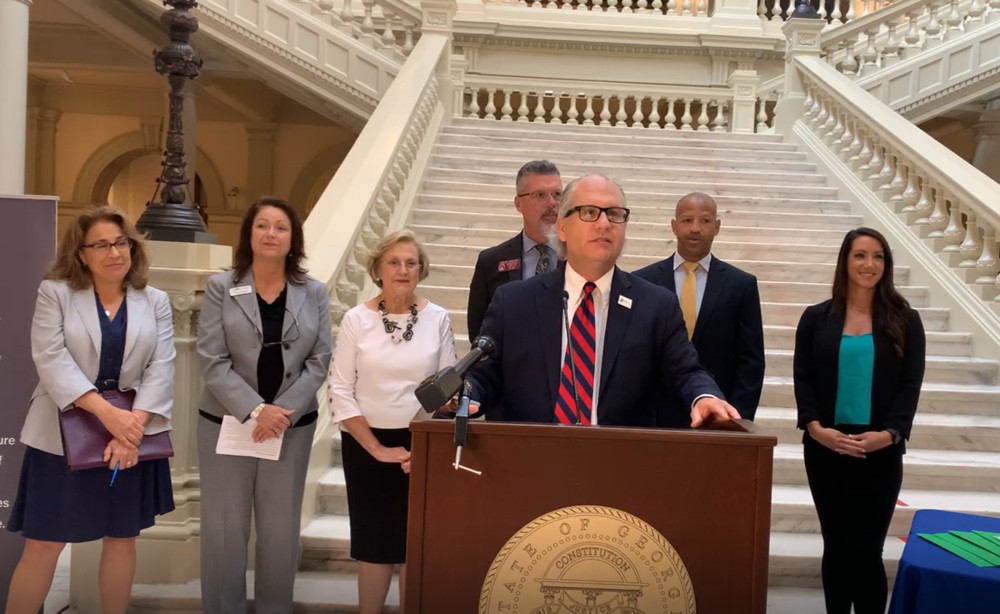
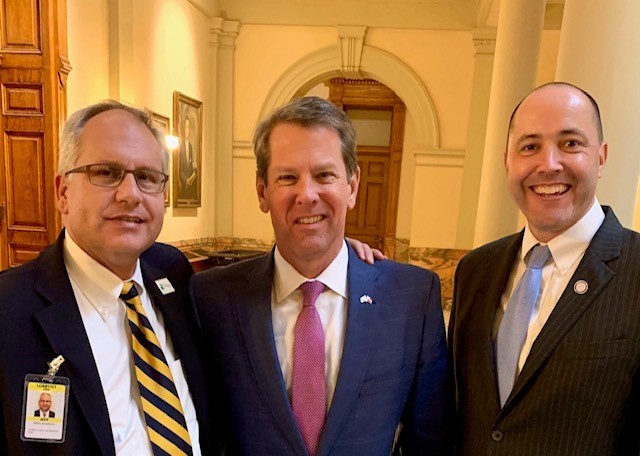
Image Credits
Jeff Breedlove













